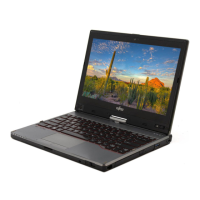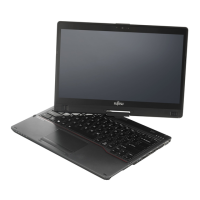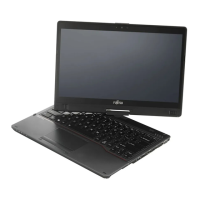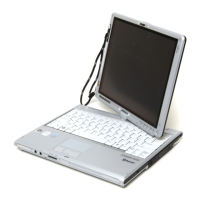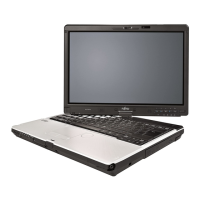| Bus type | QPI |
|---|
| Stepping | D1 |
|---|
| Tjunction | 100 °C |
|---|
| Processor cache | 3 MB |
|---|
| Processor cores | 2 |
|---|
| Processor model | i5-6200U |
|---|
| System bus rate | 4 GT/s |
|---|
| Processor family | Intel® Core™ i5 |
|---|
| Processor series | Intel Core i5-6200 series |
|---|
| Processor socket | LGA 1356 (Socket B2) |
|---|
| Processor threads | 4 |
|---|
| Processor codename | Skylake |
|---|
| Configurable TDP-up | 25 W |
|---|
| Processor frequency | 2.3 GHz |
|---|
| Processor cache type | Smart Cache |
|---|
| Configurable TDP-down | 7.5 W |
|---|
| Processor lithography | 14 nm |
|---|
| Processor manufacturer | Intel |
|---|
| Processor front side bus | - MHz |
|---|
| PCI Express slots version | 3.0 |
|---|
| Processor boost frequency | 2.8 GHz |
|---|
| Processor operating modes | 64-bit |
|---|
| ECC supported by processor | No |
|---|
| PCI Express configurations | 1x4, 4x1 |
|---|
| Thermal Design Power (TDP) | 15 W |
|---|
| Configurable TDP-up frequency | 2.4 GHz |
|---|
| Configurable TDP-down frequency | 0.8 GHz |
|---|
| Maximum number of PCI Express lanes | 12 |
|---|
| On-board graphics card | Yes |
|---|
| On-board graphics card ID | 1916 |
|---|
| Discrete graphics card model | Not available |
|---|
| On-board graphics card model | Intel® HD Graphics 520 |
|---|
| On-board graphics card family | Intel® HD Graphics |
|---|
| Maximum on-board graphics card memory | 1.74 GB |
|---|
| On-board graphics card OpenGL version | 4.4 |
|---|
| On-board graphics card base frequency | 300 MHz |
|---|
| On-board graphics card DirectX version | 12.0 |
|---|
| On-board graphics card dynamic frequency (max) | 1000 MHz |
|---|
| Form factor | Convertible (Swivel) |
|---|
| Product type | Hybrid (2-in-1) |
|---|
| Product color | Black, Grey |
|---|
| Memory slots | 1x SO-DIMM |
|---|
| Internal memory | 4 GB |
|---|
| Memory clock speed | 2133 MHz |
|---|
| Memory form factor | On-board |
|---|
| Internal memory type | DDR4-SDRAM |
|---|
| Maximum internal memory | 20 GB |
|---|
| Memory layout (slots x size) | 1 x 4 GB |
|---|
| Intel segment tagging | Home Office, Small Business |
|---|
| HDD size | 2.5 \ |
|---|
| HDD speed | 5400 RPM |
|---|
| HDD interface | SATA III |
|---|
| Storage media | HDD |
|---|
| Optical drive type | DVD Super Multi |
|---|
| Total storage capacity | 500 GB |
|---|
| Compatible memory cards | SD, SDHC, SDXC |
|---|
| Number of HDDs installed | 1 |
|---|
| Display surface | Matt |
|---|
| Display diagonal | 12.5 \ |
|---|
| Touch technology | Multi-touch |
|---|
| Touchscreen type | Capacitive |
|---|
| Display brightness | 300 cd/m² |
|---|
| Display resolution | 1366 x 768 pixels |
|---|
| Native aspect ratio | 16:9 |
|---|
| Contrast ratio (typical) | 500:1 |
|---|
| Audio chip | Realtek ALC255 |
|---|
| Front camera HD type | Full HD |
|---|
| Front camera resolution | 1920 x 1080 pixels |
|---|
| Front camera signal format | 1080p |
|---|
| Front camera resolution (numeric) | 2 MP |
|---|
| WWAN | Installed |
|---|
| MIMO type | Multi User MIMO |
|---|
| 4G standard | LTE |
|---|
| 3G standards | UMTS |
|---|
| Antenna type | 2x2 |
|---|
| Wi-Fi standards | 802.11a, Wi-Fi 5 (802.11ac), 802.11b, 802.11g, Wi-Fi 4 (802.11n) |
|---|
| Bluetooth version | 4.1 |
|---|
| WLAN controller model | Intel Dual Band Wireless-AC 8260 |
|---|
| Wi-Fi data rate (max) | 867 Mbit/s |
|---|
| Ethernet LAN data rates | 10, 100, 1000 Mbit/s |
|---|
| Mobile network generation | 4G |
|---|
| Charging port type | DC-in jack |
|---|
| USB 2.0 ports quantity | 0 |
|---|
| USB 3.2 Gen 1 (3.1 Gen 1) Type-A ports quantity | 3 |
|---|
| Pointing device | Touchpad |
|---|
| Keyboard backlit color | White |
|---|
| Keyboard number of keys | 85 |
|---|
| Trial software | McAfee Multi Access Security |
|---|
| Pre-installed software | Fujitsu LIFEBOOK Application Panel, Fujitsu Display Manager, ShockSensor Utility, Power Saving Utility, Fujitsu Plugfree Network, Win7: Fujitsu Recovery, Microsoft Office |
|---|
| Recovery operating system | Windows 7 Professional |
|---|
| Battery voltage | 11.25 V |
|---|
| Battery capacity | 6400 mAh |
|---|
| Battery life (max) | 11 h |
|---|
| Number of battery cells | 6 |
|---|
| AC adapter frequency | 50 - 60 Hz |
|---|
| AC adapter input voltage | 100 - 240 V |
|---|
| AC adapter output voltage | 19 V |
|---|
| Cable lock slot type | Kensington |
|---|
| Password protection type | BIOS, HDD, Supervisor, User |
|---|
| Operating temperature (T-T) | 5 - 35 °C |
|---|
| Storage relative humidity (H-H) | 8 - 85 % |
|---|
| Operating relative humidity (H-H) | 20 - 85 % |
|---|
| Sustainability certificates | RoHS, EPEAT Gold, ENERGY STAR |
|---|
| Certification | CE!, EN 60950, IT-Eco-Declaration, WEEE, Microsoft Operating Systems (HCT / HCL entry / WHQL), GOST |
|---|
| Processor code | SR2EY |
|---|
| Processor ARK ID | 88193 |
|---|
| Processor package size | 42 X 24 mm |
|---|
| Supported instruction sets | SSE4.1, SSE4.2, AVX 2.0 |
|---|
| Intel Smart Response Technology version | 1.00 |
|---|
| Intel Stable Image Platform Program (SIPP) version | 0.00 |
|---|
